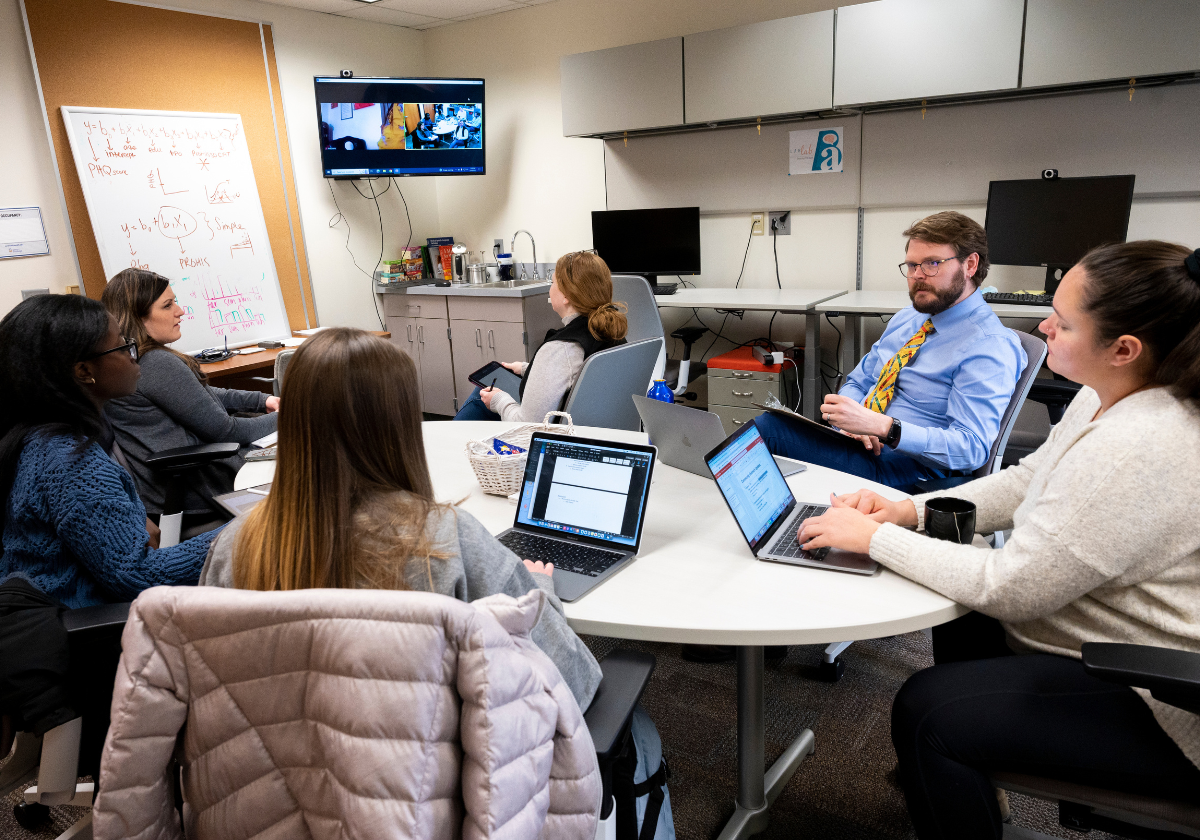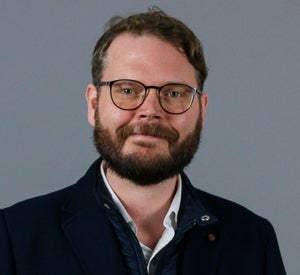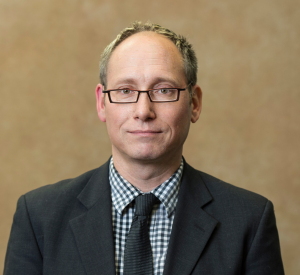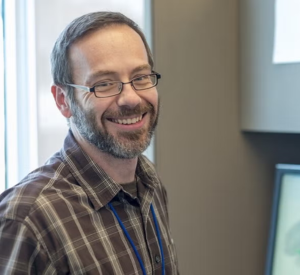There’s one date that’s always circled on Michael Yerega’s calendar. It’s the second Wednesday of every month. Yerega knows on that day from 11 a.m. to 1 p.m., he will be attending the Aphasia Support Group at the SHRS Wellness Pavilion in Pitt’s Community Engagement Center in Homewood.
“I really look forward to going,” says Yerega. “I’ve met so many nice people there—people I probably never would have met otherwise. It’s fun and a chance to talk to others about the things we have in common.”
What the group has in common is aphasia, a language disorder that causes difficulty in reading, writing, speaking and understanding. Yerega developed aphasia after a stroke about six years ago. Others may develop the condition after a traumatic brain injury or tumor, and there is a progressive form of aphasia associated with dementia.
Approximately 2 million people in the U.S. currently have aphasia, and nearly 180,000 more acquire it each year, according to the National Aphasia Association.
“Aphasia affects everyone differently,” notes Professor Sarah Wallace, Department of Communication Science and Disorders (CSD). “Some have mild difficulties while others have very severe communication problems.”
“The important thing to remember is these are multidimensional people who still have thoughts, opinions and emotions. They know what they want to say but have difficulty finding the language to get their message across,” she continues.
Wallace and CSD Assistant Professor Will Evans, both principal investigators for the Pittsburgh Translational Aphasia Research Initiative (PTARI), founded the Aphasia Support Group in early 2022 along with CSD Professor Michael Dickey and William D. Hula, speech pathologist at the VA Pittsburgh Healthcare System. They hoped it would be a way to build community and provide social interaction for this population.
Although Pittsburgh, with its many universities and research centers, is renowned for its aphasia research, there has never been a support group like this—one that is embedded in the community and has a psycho-social focus.

“It’s important to have a safe place where people with aphasia and their support givers can meet and interact without fear of judgment or ridicule.”
Sarah Wallace
“There are many ways to help people with aphasia,” adds Evans. “But one of the most powerful is to set things up so they can help each other. When you bring together people who share similar experiences, it is empowering.”
According to Evans, “The peer support is quite wonderful. Instead of having a speech-language pathologist always leading the discussions, members of the group are welcome
to step up and talk about their experiences or offer suggestions to deal with specific issues.”
Speech-language pathologist and alumna Chrisa Kravetz (BA ’09, MA ’11) serves as the support group coordinator. She says members of the group definitely feel a connection to each other
“They share ideas about their experiences, concerns and achievements,” explains Kravetz. “For example, one member was looking forward to meeting an old friend who did not know about his aphasia. He was struggling with how to explain his new way of communicating. Members of the group were very supportive and encouraged him to be himself, as that is what has worked for them in similar circumstances.”
Meetings typically include a time to meet and greet, ask questions and share anything that’s on their minds. Sometimes there is a guest speaker who provides new information or insight into the condition.
The highlight of the monthly meetings is the member spotlight, a chance for members to share something special with others.
One member, a former baker, came to the meeting and baked cupcakes for the group in the kitchen of the Wellness Pavilion. It was the first time he had baked since his stroke.
“Although his communication skills are limited by his condition, he allowed others to get to know him through his baking skills,” continues Kravetz. “Everyone enjoyed his delicious cupcakes—and getting to know him better!”
She says other members shared vacation photos with the group, which prompted a lot of conversations about travel, scenery and a variety of related topics.
“The member spotlights add a different dimension to the group dynamic,” declares Kravetz. “Now we not only have a good educational meeting, it’s something much more personal, more meaningful.”
Sara Worsham, an undergraduate Communication Science major, helps with various tasks during the group meetings. As she gets to know members of the group, she’s gaining a better understanding of aphasia.
“This group is so important because it gives people with aphasia and their caregivers access to resources and strategies to help them work through their journeys with aphasia,” says Worsham. “The members seem to appreciate having a community of people who understand what they are going through and are there to help.”
“For me, I like the group because we all have the same problem,” adds Yerega. “Someone might have an idea about something and we can discuss it and try it out and see if it works for us.”
“This group reminds me that most people want to improve themselves and help others do the same. It’s a really nice thing.”
Michael Yerega





